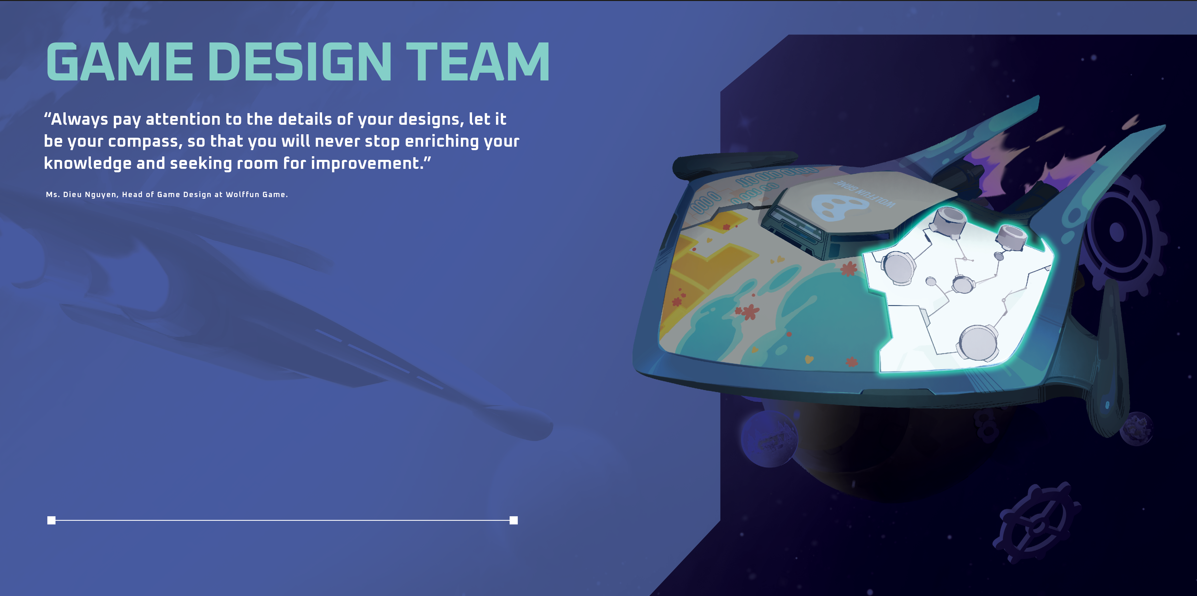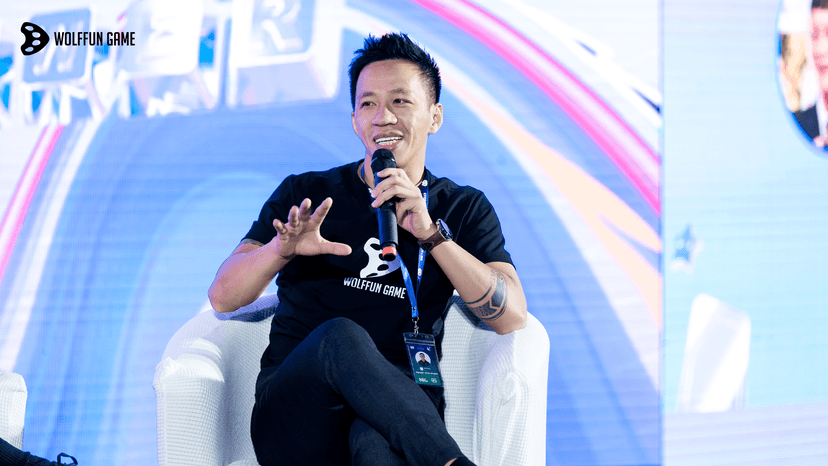#WOLFFUN TEAM: Game Design Team 101
A game designer is responsible for both the vessel's design and the components that make it work as planned. The role is crucial, as even a minor mistake can cause a course change, impacting the final product's success.
/GAME DESIGN TEAM
‘What purpose does the design serve the product?’, 'Why do users want to use this feature?', 'How will it benefit them?', 'How does it function?', 'What settings are appropriate?' These are just a few questions among hundreds of others a game designer has to answer before deciding on creating certain content. ‘That's our responsibility.’ said Ms. Dieu Nguyen, Head of Game Design at Wolffun Game.
A game designer needs a broad range of knowledge, including psychology, education, math, logic, reading, data analysis, and the arts. Yes, even music and art. These fields may seem excessive, but they support the game designer's goals.
A good example is the understanding of psychology, which allows game designers to apply the theory of "Flow" to the gameplay that brings "intrinsic rewards" to players. Additionally, implementing logic and math in game design can help a designer present ideas in the form of numbers and formulas, simplifying the process of transferring them into the game. Comprehension of the arts will aid game designers in bringing personalities to game characters and creating costumes and sounds that are suitable for the in-game ambiance.
Furthermore, it is crucial for game designers to practice ”critical thinking” in their way of working. Typically, arriving at a conclusion regarding ideas or numbers requires a game designer to come up with plenty of different ideas and go through a process of elimination, which involves arguments and debates, to decide on the best one.
"To me, the most important skill is knowing how to be open to new ideas, new knowledge, and new experiences. A Game Designer can't be a Mr. Know-it-all as he/she has to know a lot and, at the same time, learn a lot more. By a lot, I mean it literally, as in everything and as much as possible: animals, nature, music, and even dramas. You will never know what you can apply to the game. Thus, psychology can help a lot. Sometimes, the most simple ideas can be turned into a big and successful game, such as Plants vs. Zombies." - Mr. Huy Luong, Wolffun's Game Designer.

The members of the Game Design team are on their 008 mission at the Casino Royale Wolffun Gala version.
A design often includes a tremendous amount of details, each of which should be accompanied by creativity and fine-tuning, not to mention that they must ensure harmony of all components in the system. Sometimes, to complete a design following a project's time requirement while ensuring its quality, a game designer needs to balance the time allocated to research and implementation. This is exceptionally challenging, especially when the designer is involved in game projects of different genres that they do not have experience in.
“The biggest challenge game designers often encounter is balancing the time between conducting research and translating your insights into the final product. The amount of knowledge required for the game design profession is huge in terms of quality and quantity. One must spend many years (even decades) to become an expert. In addition, applying the knowledge to the design is no piece of cake, and it takes a long time to experiment and learn from it.”
“The prerequisite for being a game designer is passion and dedication since you will spend a lot of time ingesting new knowledge to become a better designer and thinking about your design most of the time. There are also times outside of work that you will have to use to seek room for improvement and new ideas.” - Ms. Dieu.




.jpg&w=828&q=75)